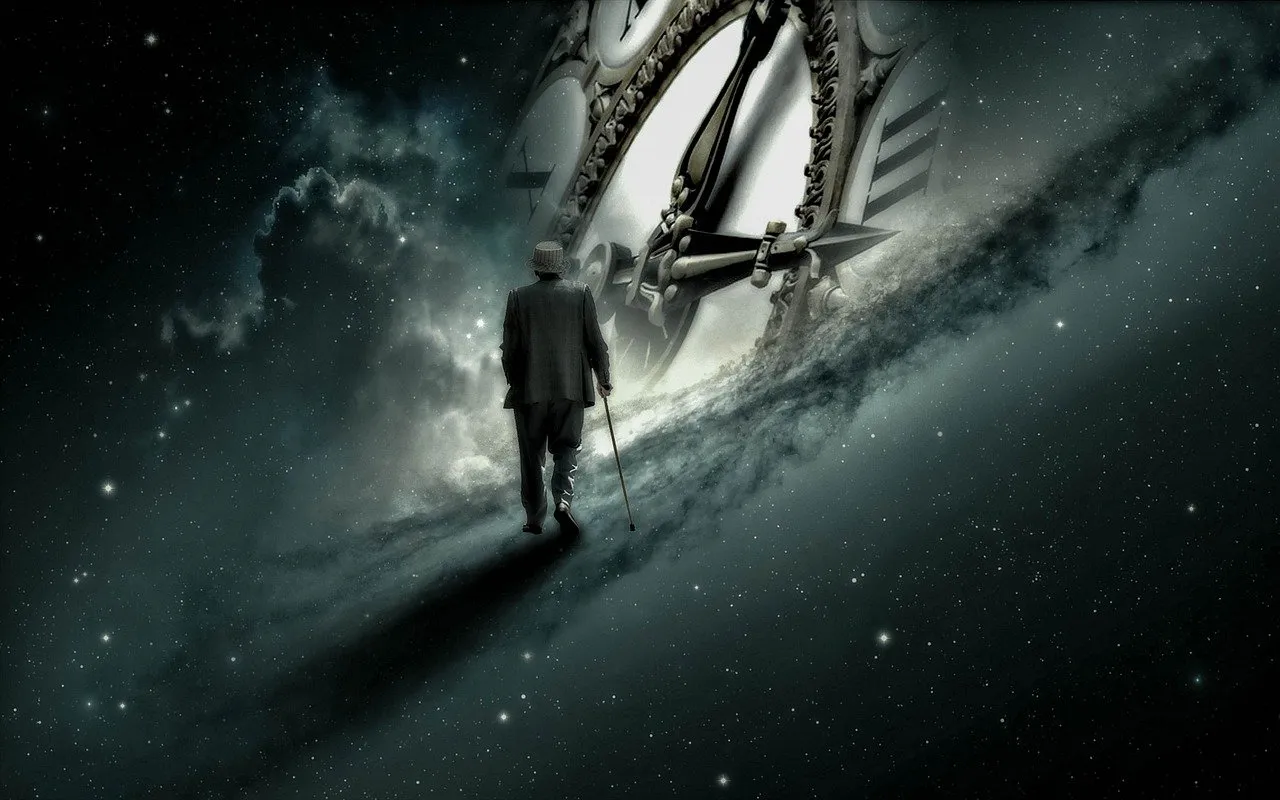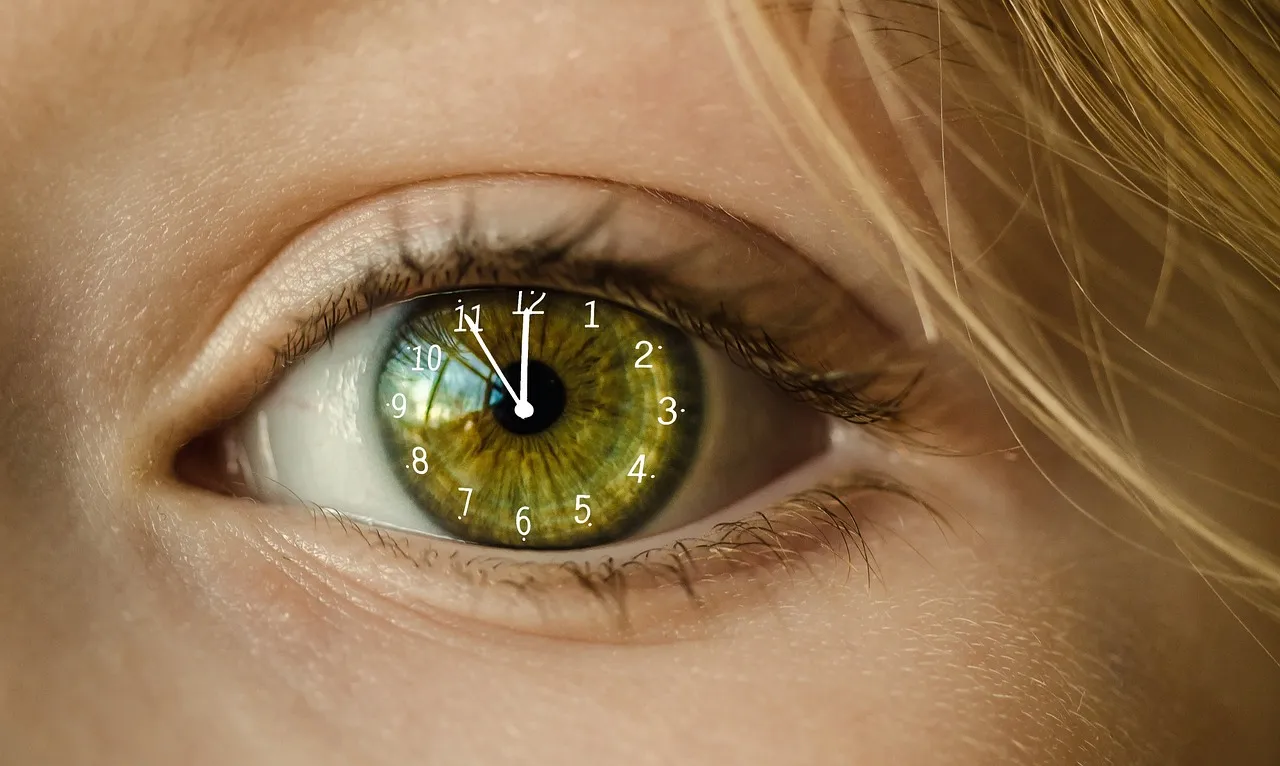
Source
La vida humana se encuentra intrínsecamente ligada a un factor que todos conocemos: el tiempo. Medimos el tiempo en segundos, minutos y horas, mientras que ignoramos lo que realmente importa, que es el ciclo natural del día y la noche.
Este ciclo es un hecho esencial para la estabilidad del planeta y, sin embargo, nos mantenemos obsesionados con fracciones de tiempo que, en su esencia, son construcciones humanas.
La famosa frase "pienso, luego existo" nos recuerda que el pensamiento precede a la existencia; antes de nacer, somos parte de un deseo humano de procrear, y así, entramos en el mundo como un pensamiento realizado.
A través de esta reflexión, deseo profundizar en la naturaleza de nuestra existencia y cómo la percepción del tiempo ha evolucionado a lo largo de la historia. Hace siglos, la humanidad se guiaba por los movimientos de la luna y el sol para marcar los ciclos de la vida.
El tiempo, tal como lo conocemos hoy, es un invento humano, creado para organizar nuestras vidas y permitirnos interactuar socialmente bajo leyes que son ajenas a la naturaleza. La necesidad de medir el tiempo surge de un deseo de controlar y comprender el flujo de la vida.
El tiempo también actúa como un marcador de nacimiento y muerte, delimitando el periodo en el que cada ser socializado transita su vida. Sin la estructura del tiempo, perderíamos la conciencia del paso de los segundos y las horas, como sucede en algunas culturas que se rigen únicamente por el ciclo del sol y la luna.
Esta obsesión por el paso del tiempo puede llevarnos a pensar que el deterioro del ser humano es consecuencia de las agujas del reloj, creando una carga mental y emocional que nos pesa al avanzar hacia un desenlace final inevitable.

Source
Desde nuestra infancia, somos prisioneros de un sistema que, a menudo, no elegimos. Cuando somos niños, los días parecen eternos porque no estamos pendientes de las horas, mientras que en la vejez, intentamos olvidar el paso del tiempo, dependiendo de otros para nuestras necesidades básicas.
La vida nos enfrenta a numerosos momentos que nos hacen reflexionar sobre el tiempo: en el amor, en la tristeza, en la soledad, en los miedos y, sobre todo, en nuestra salud. Este último aspecto es fundamental en nuestra existencia, ya que nos recuerda que la atención al tiempo puede ser crucial en situaciones de enfermedad.
He aprendido a lo largo de mi vida que la espera por una operación quirúrgica, un tratamiento médico o la respuesta a un diagnóstico pueden ser momentos de angustia. A menudo, estamos atrapados en la ansiedad por lo que puede venir, recordando que el tiempo es un factor determinante en estas situaciones.
"Pienso, luego existo" se convierte en un axioma que nos invita a entender que el sufrimiento en el amor, ya sea por la distancia, la falta de contacto físico o el final de una relación, está relacionado con nuestra obsesión por el tiempo. La necesidad de poseer y ser poseídos por otros nos distrae de lo que verdaderamente nos pertenece: nuestra vida, nuestro cuerpo, nuestra mente y nuestro espíritu.
En este contexto, es importante reflexionar sobre el deterioro de nuestro organismo y las enfermedades que pueden surgir, ya sea por negligencia o por factores externos. Ante el dolor y el miedo, podemos caer en la oscuridad, sintiéndonos atrapados en un ciclo de angustia.
Sin embargo, es crucial recordar que, a pesar de las adversidades, tenemos un potencial infinito que nos permite enfrentar los desafíos. Mantener una actitud positiva puede ayudarnos a ver con claridad y a comprender que todos estamos, de alguna manera, al borde del adiós. Sin embargo, la obsesión por el tiempo nos aleja de vivir el momento real y nos hace perder de vista lo que realmente importa.

Source
Si te encuentras atravesando una situación amorosa complicada, es esencial que vivas el potencial de ese amor sin dejarte llevar por el miedo. Si estás lidiando con estrés emocional, recuerda que incluso los días más brillantes terminan en la noche, y así, la vida sigue su curso.
Cada día es una oportunidad para cambiar la perspectiva y encontrar la paz. Si enfrentas un momento crítico relacionado con tu salud, ten presente que posees la fuerza para luchar contra lo que te afecta, sin importar cuánto tiempo te lleve.
La existencia humana no se mide simplemente en años vividos, sino en las decisiones que tomamos para cuidar de nuestra vida. Cada instante es valioso, y al reflexionar sobre el tiempo, podemos encontrar un nuevo significado en nuestra existencia.
Así que, ya sea que te enfrentes a la incertidumbre del futuro o que estés disfrutando de un momento presente, recuerda que pensar es la clave para dar sentido a tu vida. Eres tú quien realmente conoce el valor del segundo, de los minutos y de las horas.
En última instancia, el tiempo es solo una construcción humana; lo que verdaderamente importa es cómo elegimos vivir dentro de esos marcos temporales.
Por lo tanto, piensa y luego existe. Vive con la fortaleza que proviene de tu interior, no por las expectativas o necesidades de los demás. En este viaje de la vida, el tiempo puede ser un aliado o un enemigo, dependiendo de cómo decidamos interactuar con él.
Al final, la verdadera existencia se encuentra en la calidad de nuestras experiencias y en cómo elegimos enfrentarlas.

Source
Human life is intrinsically linked to a factor we are all familiar with: time. We measure time in seconds, minutes and hours, while ignoring what really matters, which is the natural cycle of day and night.
This cycle is an essential fact for the stability of the planet and yet we remain obsessed with fractions of time that, in their essence, are human constructs.
The famous phrase “I think, therefore I am” reminds us that thought precedes existence; before we are born, we are part of a human desire to procreate, and thus, we enter the world as a realized thought.
Through this reflection, I wish to delve into the nature of our existence and how the perception of time has evolved throughout history. Centuries ago, mankind was guided by the movements of the moon and the sun to mark the cycles of life.
Time, as we know it today, is a human invention, created to organize our lives and allow us to interact socially under laws that are alien to nature. The need to measure time arises from a desire to control and understand the flow of life.
Time also acts as a marker of birth and death, delimiting the period in which each socialized being transits its life. Without the structure of time, we would lose awareness of the passing of seconds and hours, as happens in some cultures that are governed solely by the cycle of the sun and moon.
This obsession with the passage of time can lead us to think that the deterioration of the human being is a consequence of the hands of the clock, creating a mental and emotional burden that weighs us down as we move towards an inevitable final outcome.

Source
From our childhood, we are prisoners of a system that we often do not choose. As children, the days seem eternal because we are oblivious to the hours, while in old age, we try to forget the passage of time, depending on others for our basic needs.
Life confronts us with numerous moments that make us reflect on time: in love, in sadness, in loneliness, in fears and, above all, in our health. This last aspect is fundamental in our existence, as it reminds us that attention to time can be crucial in situations of illness.
I have learned throughout my life that waiting for a surgical operation, a medical treatment or the response to a diagnosis can be moments of anguish. Often, we are caught up in anxiety about what may lie ahead, remembering that time is a determining factor in these situations.
“I think, therefore I am” becomes an axiom that invites us to understand that suffering in love, whether due to distance, lack of physical contact or the end of a relationship, is related to our obsession with time. The need to possess and be possessed by others distracts us from what truly belongs to us: our life, our body, our mind and our spirit.
In this context, it is important to reflect on the deterioration of our organism and the diseases that can arise, whether due to neglect or external factors. In the face of pain and fear, we can fall into darkness, feeling trapped in a cycle of distress.
However, it is crucial to remember that, despite adversity, we have infinite potential that allows us to face challenges. Maintaining a positive attitude can help us see clearly and understand that we are all, in some way, on the brink of goodbye. However, an obsession with time takes us away from living in the real moment and causes us to lose sight of what really matters.
If you find yourself going through a complicated love situation, it is essential that you live the potential of that love without letting fear take over. If you are dealing with emotional stress, remember that even the brightest days end in the night, and so life goes on.

Source
Every day is an opportunity to change perspective and find peace. If you are facing a critical moment related to your health, know that you possess the strength to fight what ails you, no matter how long it takes.
Human existence is not measured simply in years lived, but in the decisions we make to take care of our lives. Every moment is precious, and by reflecting on time, we can find new meaning in our existence.
So whether you are facing the uncertainty of the future or enjoying a present moment, remember that thinking is the key to giving meaning to your life. It is you who really knows the value of the second, the minutes and the hours.
Ultimately, time is only a human construct; what really matters is how we choose to live within those time frames.
Therefore, think and then exist. Live with the strength that comes from within, not by the expectations or needs of others. In this journey of life, time can be an ally or an enemy, depending on how we choose to interact with it.
In the end, true existence is found in the quality of our experiences and how we choose to deal with them.